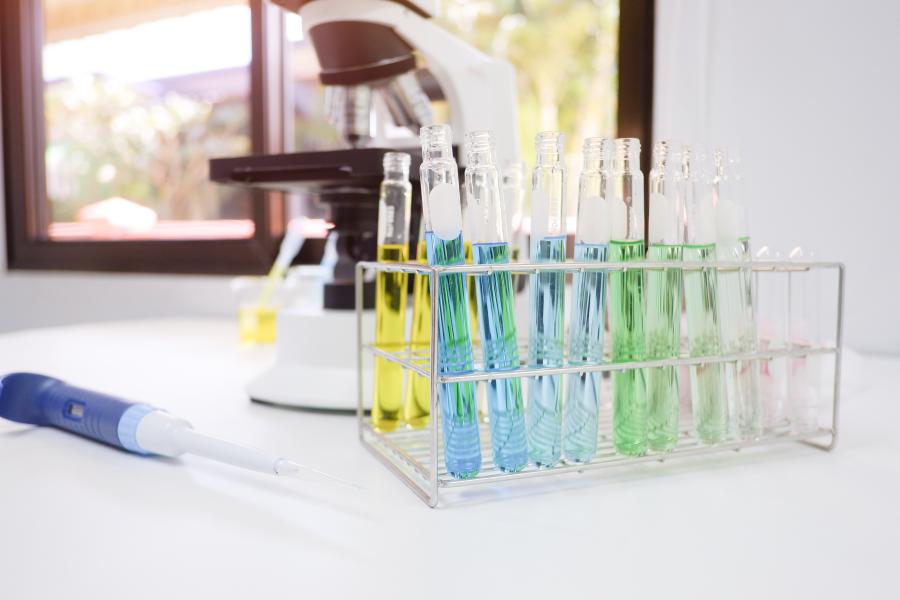About This Course
Molecular Medicine is a discipline which researches the causes and mechanisms of disease at a molecular level and applies this knowledge to the prevention, diagnosis and treatment of disease. The Master of Research (MRes) degree in Molecular Medicine uses a multi-disciplinary, research-based approach to teach students the skills needed to pursue a research career in academia, industry or research institutes.
The main aim of this program is to develop the Scientific Research Skills of motivated postgraduate students aiming for a career in scientific research. The program will combine laboratory research with supportive and integrative taught content tailored to equip the student to effectively interpret and communicate scientific findings. The program aims to develop rigorous research and analytical skills, a concept of good laboratory practice and ability to critically interpret and evaluate both the scientific literature and self-generated data. Creativity and originality in students approach to laboratory research will be encouraged. Successful graduates will also attain wider employability skills including multi-disciplinarity, data management, numeracy, statistics, translating research into practice and in silico data analysis necessary for a successful career in both academic and industrial sectors.
We also offer a taught MSc in Medical Molecular Biology with Genetics.
Course Content
What will you study on this course?
The programme consists of a 60 credit taught element, which includes a choice of modules (e.g. Human Molecular Genetics; Human Immunology and Disease; Stem Cells, Disease and Therapy; see below).
In preparation for the Research Project (120 credits), students will follow the Research Skills module (which includes writing a literature review, attending research seminars, etc.), and can choose between two intense practical modules, Laboratory Molecular Research or Molecular Diagnostics.
The main emphasis of the degree is on the Research Project. This is worth 120 credits, significantly more than in a typical taught Masters degree. The project will be performed under direct supervision of a research group leader in one of the well-equipped laboratories of the School of Medical Sciences and the North West Cancer Research Institute.
The taught element of this MRes course is assessed through a combination of course work and final exams. The research project is assessed by a written report, oral presentation and the lab book.
After successful completion of this degree, students will have obtained all the theoretical and practical skills necessary for the successful pursuit of a research career and have a strong competitive advantage over holders of an undergraduate or taught masters degree to secure a PhD position or employment in research.
Entry Requirements
Applicants are normally expected to have a minimum 2.ii BSc (Honours) undergraduate degree (or equivalent) in a relevant biological/medical/(bio)chemical sciences subject.
Applicants with equivalent professional qualifications and/or substantial relevant work/academic/practical experience and applications from working professionals with non-graduate qualifications will be considered on an individual basis.
English language requirements: Applicants who do not speak English or Welsh as their first language must provide satisfactory evidence of knowledge and understanding of written and spoken English: IELTS 6.0 (with no element below 5.5). If you have not been able to achieve the minimum English language level required for this course, you may apply to undertake a Pre-sessional English course at Bangor University. For full information on English language requirements, the range of accepted English language proficiency tests accepted and intensive English language courses available please visit our English Language Requirements pages.
Further information:
- relevant lab experience is required for this course
- for an informal discussion about this course, or to discuss eligibility, please feel free to contact us
Careers
A postgraduate degree is essential for students which want to pursue a scientific research career in academia or industry. The main aim of this programme is to develop the scientific research skills of motivated postgraduate students aiming for a career in scientific research. The programme will combine laboratory research with supportive and integrative taught content tailored to equip the student to effectively interpret and communicate scientific findings. The program aims to develop rigorous research and analytical skills, a concept of good laboratory practice and ability to critically interpret and evaluate both the scientific literature and self-generated data. Creativity and originality in students’ approach to laboratory research will be encouraged. Successful graduates will have the knowledge, understanding and proficiency for career progression in medically related PhD level molecular research, or as specialist technical/medium grade scientists in academic, medical or industrial biomedical/medical organisations.
MRes Molecular Medicine Alumni profiles
Application
Please note. This course typically starts in September/October or January. Start of the degree outside these periods may be possible and can be considered after discussion with the degree organiser (see further information below) .
It is possible to do the degree part time (typically over 2 years). To discuss this possibility, please contact the degree organiser.
Application guidance
- All applications must be submitted through the University's online application portal
- As part of your application you must upload an up-to-date CV
- You must upload a Supporting Personal Statement
- You must provide a satisfactory Reference
- You do not need to supply a Research Proposal. In lieu of this, please upload a document stating that 'I understand that a research proposal is not required at application'
- There is no need to contact or list a research supervisor in your application, projects and research supervisors will be selected after commencing the course.
For further information on eligibility, or an informal discussion about this course you can contact Dr Edgar Hartsuiker (e.hartsuiker@bangor.ac.uk)


